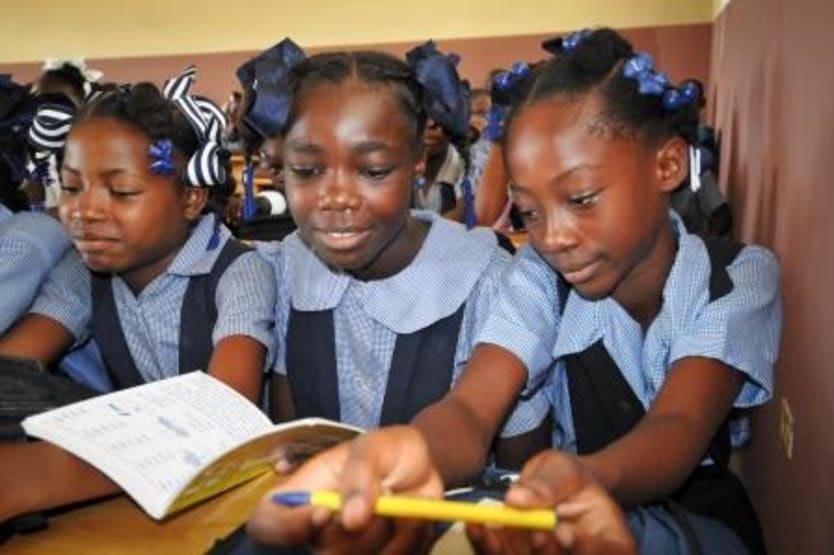
Without a doubt, there is still much work to do in Haiti, three years since an earthquake left the capital and its surrounding areas in shambles. Education, clean water and nutritious food remain out of children’s reach, for instance, according to World Vision.
“This is having a severe impact on their future,” Holly Frew, World Vision’s media relations manager for international news, told Devex in an email.
World Vision, which has been on the ground in Haiti since 1959, has called its response to the disaster “one of the most challenging humanitarian endeavors” in its more than six decades of history. Disaster response has drawn to a close, and the organization has shifted its attention to long-term development in Haiti.
Drawing insights from her colleagues who have worked in Haiti, Frew shared with Devex takeaways from the recovery effort and recommendations to accelerate development there.
The pace of development in Haiti has been described as slow. What can the international community do to speed up the process?
The international community should first and foremost support the government of Haiti in putting in place a strong accountability and transparency mechanism to oversee all the aid that is invested in Haiti.
Secondly, the funding should include resources to hire, equip and train a cadre of highly qualified staff to strengthen government capacity. This support will also help the international community operate closer and in the same direction, thus creating efficiencies.
Additionally, the international community, especially donors, should meet their promises to deliver more money and aid to Haiti as agreed during high-level meetings held in New York in September 2012.
The private sector needs to develop further businesses that can create jobs for many Haitians. External investment is required for that to happen and to encourage those investments, the government of Haiti should ensure that minimum conditions are in place like security and basic infrastructure such as health, water and sanitation, and finally a favorable climate for business.
How has the working environment for development professionals in Haiti changed in the last three years?
In the last three years, we have observed that the government of Haiti is getting more and more involved in taking leadership to coordinate and regulate external aid that comes in the country. This is a good step forward and the government needs support and guidance in the process, and needs to work in consultation with its key partners in the country including NGOs.
Recently, some decisions were made without consultation of NGOs which may result in hindering NGOs’ work instead of facilitating it, such as the decree regulating customs clearance.
Has the influx of aid groups after the 2010 quake truly helped Haiti – or are there ways in which it may actually hamper development?
The influx of aid groups to assist the Haitian people after the 2010 quake has had an impact in addressing the needs of the affected people. These groups sought to provide needed emergency supplies and services that were necessary to save lives, and because the majority of the aid groups focused mostly on the short-term emergency response, their activities helped the victims of the quake address their most pressing needs.
However, at times, the absence of coordination coupled with a lack of an accountability mechanism led to challenges like duplication of activities and saturation in some project sites.
For World Vision and many other nonprofits, this was the largest and most complex disaster we’ve ever responded to. From these challenges has come greater cooperation and a framework for future disasters, to help the response be more efficient and eliminate duplication. In addition, the earthquake has garnered more attention to the Haitian plight and deep-rooted challenges that are hindering further development. This additional attention has resulted in more resources and support for the Haitian people and government.
Read our last 3 Questions for…








